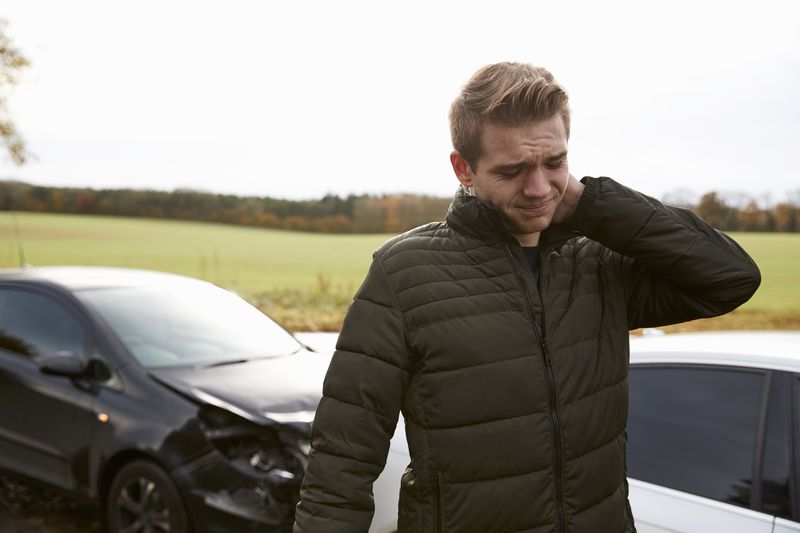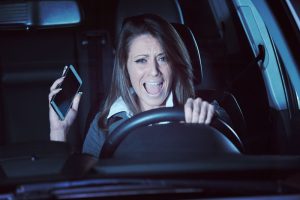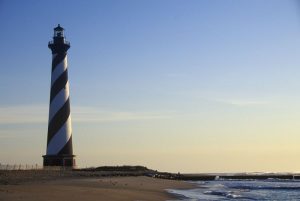- Free Consultation: (252) 299-5300 Tap Here to Call Us
There really isn’t such thing as an accident

If you or someone you love was hurt as a result of a car wreck, it wasn’t an accident. Someone did something wrong. They didn’t follow a law or a rule of the road. They failed to pay attention or keep a proper lookout or observe the speed limit or provide sufficient distance to stop. They didn’t follow the rules.
They made a choice. They made a decision and as a result, someone was hurt or killed.
It doesn’t necessarily mean they are a bad person; but, to call something an “accident,” when it really was a bad decision or choice, isn’t really all that accurate, is it?
It’s a way to deflect blame and avoid personal responsibility for the injury and damages to an innocent victim.
It’s more than just words. Car wrecks and negligence have consequences.
It happens. People use a term to avoid an unpleasant or embarrassing situation. It’s called a euphemism or “suspicious words.”

We should all be suspicious because when it comes to the law, those euphemisms are often an attempt to avoid taking responsibility.
Not only that, it may also be an unfair attempt to shift blame to the innocent party.
If we’re being accurate, the failure to follow a law or rule is always intentional. That may sound harsh.
At the same time, if you think about it, what happens when there is a wreck?
- How did things happen?
- Do cars normally crash into one another?
- Is anything merely an “accident” when several thousand pound vehicles plow into one-another?
Or do we, as a practice, ignore or even consider such possibilities? Do we chalk bad wrecks up to fate or “bad luck?” Is life ever just that simple? Do things “just happen?” Oh well?
Or, following a tragedy, do we ask questions, if nothing else, to avoid something ever happening in the future, like:
- What should have been done?
- What should NOT have been done?
- Could this have been avoided?
- How hard would it have been to keep this from happening?
When it comes to life-and-limb, we should speak truly and accurately. We should call things what they are. And when we’re dealing with peoples’ lives and livelihoods, in court, they deserve that level of precision and care.
Car wrecks happen because someone failed to follow the rules. People do not “accidentally” cause wrecks. They make a choice and that choice is this:
The rules don’t apply to me. I do what I want to do.
That’s what happens when people speed or follow too closely or not pay attention or text on their phone. It’s because that’s what they have made a choice to do. It is no “accident.”
Is drunk driving an accident?
We all know what really happens. When someone is hurt in a drunk driving wreck, with sometimes life-changing consequences, does it make sense to use a euphemism? Or is it better to speak plainly?
If a drunk driver crosses the center-line and hits a car, killing people, is it fair to say, “He had a little too much to drink and unfortunately someone passed away? It was an ‘accident.'”
If you are laid-up from work with a broken leg, was it an “accident” when the person who caused the wreck was texting or talking on their cell phone or eating lunch and not paying attention?
No, a decision was made. That decision was, “What I want to do is more important than what may happen to someone else. Chances are, it’ll be OK.”
But what happens if things aren’t OK? Is it right to call something an ‘accident’ that could have been avoided by just following simple rules?” – Danny Glover
The failure to do something can be just as bad as actually doing something. That too is no accident. It is also a choice.
What is negligence?

We all are held to certain standards if we are going to drive on the roadways of North Carolina. We owe duties to one another.
There are reasons behind the laws of the state. In fact, that’s why we have laws in the first place: To protect us.
People don’t always think that way, seeing certain rules as being more of an inconvenience than something enacted for the overall good.
Speed limits are set in place because really smart engineers did the math.
They figured out what is safe based on things like road-width, vehicle size, traffic flow, standard conditions, road-signs, lights, and vehicle parameters.
They determined, “This is the fastest safe speed” and set the limit. Nothing says you have to go to the limit. Everyone knows there are times when the limit is still too high, given road conditions or the type of a vehicle.
For example, the limit for a semi truck-and-trailer is often actually much less than the “limit” for ordinary cars. Negligence is based on a duty.
When someone owes a responsibility to either do something or NOT do something, that’s called a duty. Wrecks take place when people fail to observe a duty or duties. There often is more than one failure when it comes to a wreck.
And that failure to act responsibly, to observe the duty or duties like the rest of us, results in something really bad. When it comes to a wreck, that “something bad” may be injuries, losses, and “damages.”
It also could mean that someone is dead, forever taken from their loved ones. No, there really isn’t such a thing as an accident in car wreck cases in North Carolina.
What are the damages?
The terms for damages, at least in the legal context, has to do with things like loss of wages or ability to work, ER and medical bills, permanent injuries, and damage to property.
If a matter is in court in front of a jury, all-too-often that means someone else isn’t following a duty. They are shirking their duty, refusing to pay a claim due, despite the negligence of their client or employee or the insured.
We are almost always fighting against an insurance company in court, not a person. They don’t want to pay when they should, what they should. Making it difficult, wearing people out, when they’re already down, forces us to go to court – Danny Glover
That’s frustrating because, in North Carolina, we all have a legal duty to make sure we have insurance if we’re driving a vehicle. Every vehicle on the roadways of North Carolina must have insurance on it.
Ironic, isn’t it? Maybe better said, it’s downright hypocritical. We’re all required under the law to make sure we’re covered, that we have insurance.
We have a duty. It’s actually a crime not to be insured. And yet, the very thing we are required to carry often lets us and others down. Insurance companies fail in their duty to pay claims when their insured is at fault. That’s why we’re in court more than 99% of the time.
We don’t bring cases, with the time and expense required, when we have doubts about what really happened. No, we’re almost always fighting over money the insurance company should, but refuses, to pay.
The fact we’re even arguing in court is no accident
Litigation in North Carolina comes down to the assignment of responsibility: Who caused the wreck? Who didn’t do what they were supposed to?
Insurance companies do not like paying claims. The way they make money is to either not pay or pay less than they should.
That’s why we’re in court because the carrier won’t settle. We’ve filed a lawsuit and conducted discovery. In North Carolina, we are required to present proof of claims and turn over documentation regarding the cause of the wreck.
We are required to set forth clearly and plainly the basis for the lawsuit. Nothing is a surprise in court. Indeed, we’re required to negotiate before-hand at either a mediation or arbitration, depending on the circumstances.
And even after all that, after we’ve shown our cards, explained what happened, and tried to settle, the carrier refuses to pay. That too is no accident. It is a choice to take something to trial in court.
Modified Transcript of “There really isn’t such thing as an accident” for the Hearing Impaired
What you can ask for if you’re hurt in a car wreck are what’s called damages and damages is a legal term that includes medical bills, lost income, pain and suffering, permanent injury, scarring.
If there’s a death involved, then there are a number of other defined damages that you can seek compensation for.
But, the amount that you are entitled to for each of those elements of damages is determined by either an agreement between you and the insurance company or by a jury following a trial.
We help people with car wrecks, motorcycle wrecks, and trucking fatalities.
Call Now for Free Case Evaluation: 252-299-5300
Ref 2018 : 1705N







